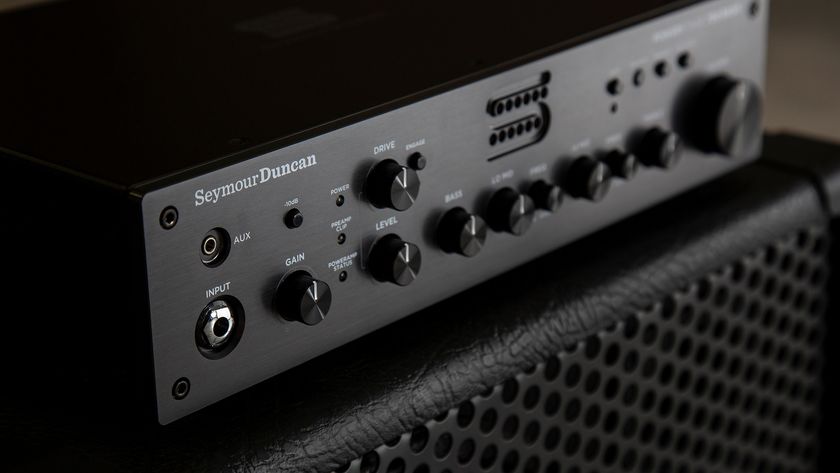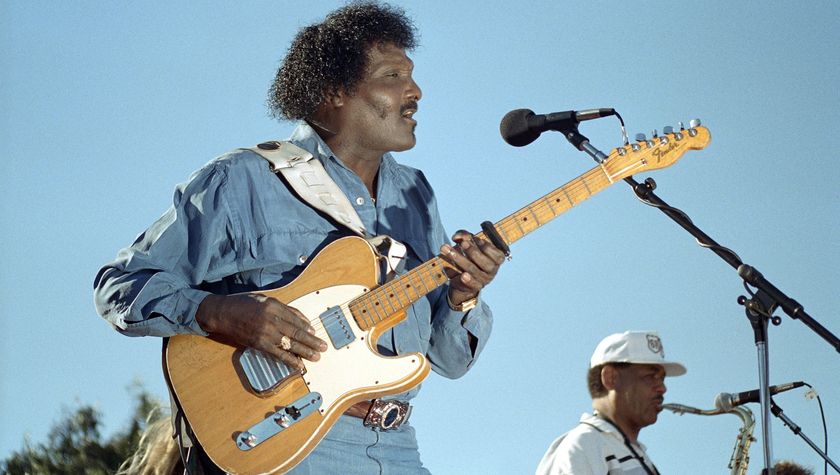Interview: John Rzeznik and the Goo Goo Dolls Go Acoustic
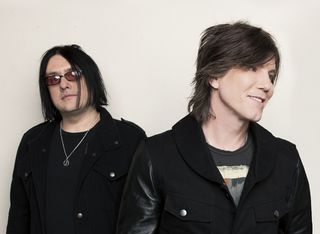
Last year multi-platinum band the Goo Goo Dolls released Magnetic, their 10th studio album.
The collection of masterfully written songs debuted in the top ten, charting strongly with singles like the red-hot “Come to Me.”
This year the band decided to mix things up with an acoustic tour titled The Otis Midnight Sessions. Instead of pairing things down, this tour found them on stage with a wide range of fabulous acoustic musicians.
Pulling from their nearly 30 year catalog, the Goo Goo Dolls not only performed hits like “Better Days,” “Iris,” “Slide” and more, but also dug deep to pull out some of their favorites.
Here I sat down with founder, guitarist, singer and Hall of Fame songwriter John Rzeznik as we talked about some acoustic magic and so much more…
I understand your acoustic tour has gone really well.
The dates have been doing really, really well, actually. We got really prepared. Instead of stripping everything down, we sort of just turned all the amps off and used a lot of percussion. At certain points during the show, there’s 11 people onstage, which is a really interesting kind of way to do things.
Get The Pick Newsletter
All the latest guitar news, interviews, lessons, reviews, deals and more, direct to your inbox!
There’s a band called Run River North that’s been opening for us. They’re a great band. Their album just came out and they open the show. And then they come and play with us during our set. It’s really a pretty awesome experience.
That is a different take on the acoustic tour! It’s a whole new build of how the songs work.
It is. There’s definitely a reinterpretation of the songs and we’re filming everything. We’re actually making a documentary out of it. I didn’t want to do the usual stripped-down acoustic thing, because I think a lot of times they just sound sort of frail and thin. We wanted it to have some oomph to it.
That’s cool. So, when you went back into your catalog to look at what songs you wanted to play, did you dig out some favorites that maybe weren’t your top hits?
Yeah, we picked songs that we really liked – a lot of them that are older and more obscure. Stuff that a lot of fans ask for, but we haven’t always gotten around to playing, because you only have a certain amount of time. And I believe, personally, that if some guy is forking down $50-60 bucks for a ticket and bringing his girlfriend or his wife with him, you have to play your hits. You have to play songs that people would want to hear.
But this show is so much longer. It’s about two hours and so we get to dig around and mess around with some old stuff so it’s fun.
Did you have to relearn some of that stuff? You probably haven’t played some of them in a long time.
I did. There were songs I hadn’t played in about 15 years that I had to sit down and really sort of remember.
Let’s talk for a minute about your gear. So, on this acoustic tour, what guitars are you taking with you?
I use all Taylors. I’m just a big fan of the Expression System in them. It’s funny. Half of the guitars I have out with me have the newest version of the Expression System, and the other half have the old one. The new version is so, so much more powerful – like, in your face. And it has this really awesome low end. I want to get the rest of my guitars outfitted with them, but I don’t think I’m going to have time before the summer tour.
I was just at the Taylor factory last week and they gave me a tour, and showed me the new Expression System 2 and how it worked – so cool!
It really is. Honest-to-God, I was blown away. I was like, this thing is leaps and bounds ahead of what it was before, and it was amazing before.
Any other gear?
I use the Evil Twin DI, which is a great tube DI. And I drive that thing pretty hard. It kind of heats up the tone and gets rid of some of that harsh high end.
Do you use any effects on stage or just at the board?
At the board. I use a digital console so they use a, like, a digital Fairchild compressor ‘cause I like that sort of wompy, sort of pumpy sound. And they do some more EQing and there’s a little bit of reverb. That’s really about it.
I’m using a Neumann KM 184 in front of a sound hole as well. But we keep it flat so we can have it for the recording, ‘cause we have to remix this whole thing for film.
So aside from the core group, when you have everybody onstage, what are the instruments that you’ve got up there?
Well, it is, let’s see... a harmonium and/or accordion and/or piano. And two violin players, mandolin, everybody sings harmony. And acoustic bass. Percussion and/or drum kit, so it’s pretty amazing.
Is this the first time you guys have done an acoustic live project like this?
No, I go out and do acoustic shows by myself. I really enjoy it.
It’s really nice to connect that way.
Yeah, it is. It sort of reminds me of what I was initially thinking, reconnecting with the initial emotions that were going on when I wrote the song.
Do you write on acoustic guitar? What’s your writing routine?
I do, most of the time. There was a period when I was trying to write a lot of stuff. I don’t know how to play the piano, so that was a really fun way to work on things, because I just had to completely feel around in the dark.
I understand that the writing for your current album Magnetic was a different process for you than in the past.
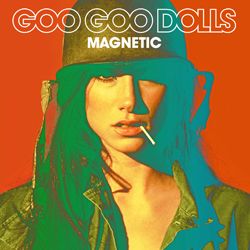
Yes, I really set about doing Magnetic as a series of singles, rather than trying to write an album. I would go and hang out with my friend Gregg Wattenberg in New York and we would sit and we would write a song. But we would sit there and we would write the music, write the words, produce it out, make a demo, send it to the label, they would say, “Yes, this song is good.”
Because on Something for the Rest of Us, I had a really hard time. They just kept saying, “More! More songs! We need more songs! No, we don’t hear it yet.” And I was determined not to get caught up in that bullshit trap of their’s.
So I’d do it one song at a time. I didn’t worry about completing an album. I just wanted to write a song at a time. Then I would go out to L.A., and I’d hang out with my friend John Shanks. He and I would just blast a song together and then we’d put it together, then we’d write another one, and then I’d go back to New York, and that’s sort of how the process worked.
I do feel like the writing on Magnetic is incredibly strong.
Thanks. Yeah, I got really sick of sitting in my room, writing by myself. I need to blow the walls out of what I do. I also need to learn from people.
And I learned a lot, especially from Gregg and John. John Shanks is probably the biggest workaholic I’ve ever met in my life. And when you’re with somebody, and they’re just like, “No, we ain’t leaving ‘til we got a song.” I’m like, “Alright. Let’s go.”
I have to take you back in time for a minute, because I feel that the soundtrack from City of Angels is the best soundtrack of all time. And your song “Iris” on there, is just a great song. And I was just wondering, how did you get involved in that project, because I know it was a milestone for you.
Yeah, it was really a life-changing experience. And I got involved in that through a guy named Danny Bramson, who was a music supervisor at Warner Bros. at the time.
He brought me in to see this film that was based on a German film called “Wings of Desire,” which I loved. It was one of my favorite films. I was watching it and I was like, “This is Wings of Desire.” Then he says, “Write a song for this part of the film here.”
I went back to my hotel room in Los Angeles, I had a guitar with four strings on it, so I was just noodling away on it, and I came up with it in a few hours over a course of that day. Then I went back to see him. And back in those days, people still had ears. So you could play something on an acoustic guitar and then say, “Well, I want to use strings here, and I’m going to bring the band in here, and I think I might do something like this.” And they could actually go, “Oh, okay, great. All right, let’s go ahead and do it.”
Whereas now, most A&R guys, they want to hear a record. They want to hear a completed production and there’s not a lot of vision in these people. When Rob Cavallo was my guy at Warner Bros., he could hear. He could hear a song and say, “All right, let’s go with this. And hey, you know what would be cool...?” And then we’d start producing. Guys like Rob and Gregg Wattenberg and John Shanks. There are not a lot of guys out there that are doing that in the A&R capacity like these people.
What’s up next with you guys? You’re going to finish this acoustic tour and then you’re going to do a full-blown tour this summer, right?
Yeah, we’re doing a full-blown tour. It’s us, Daughtry, and the Plain White T’s. And I’m starting my own publishing company, and as soon as I get done with that tour, I’m going to focus more on writing. I’m looking at different writers, like young guys, signing them and then working with them and trying to see if we can get something going.
And a vacation, I hope, too!
Yes! I owe my wife a honeymoon.
More at www.googoodolls.com
Laura B. Whitmore is a music industry marketing veteran, music journalist and editor, writing for Parade.com, Guitar World, and others. She has interviewed hundreds of musicians and hosts the She Rocks Podcast. As the founder of the Women’s International Music Network, she advocates for women in the music industry and produces the annual She Rocks Awards. She is the Senior Vice President of Marketing for Positive Grid, making the world safe for guitar exploration everywhere! A guitarist and singer/songwriter, Laura is currently co-writing an album of pop songs that empower and energize girls.
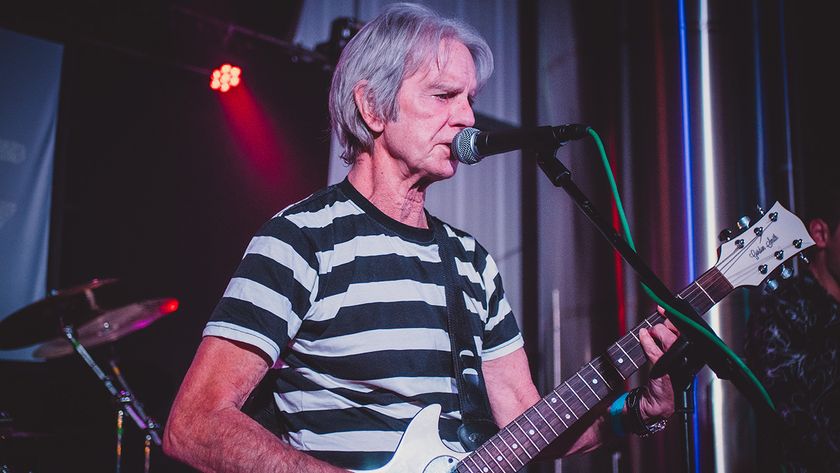
“I get asked, ‘What’s it like being a one-hit wonder?’ I say, ‘It’s better than being a no-hit wonder!’” The Vapors’ hit Turning Japanese was born at 4AM, but came to life when two guitarists were stuck into the same booth
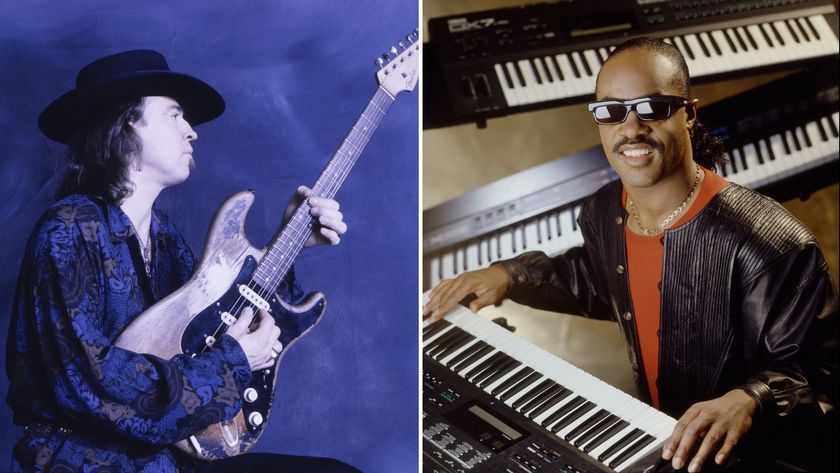
“Let's play... you start it off now, Stevie”: That time Stevie Wonder jammed with Stevie Ray Vaughan... and played SRV's number one Strat

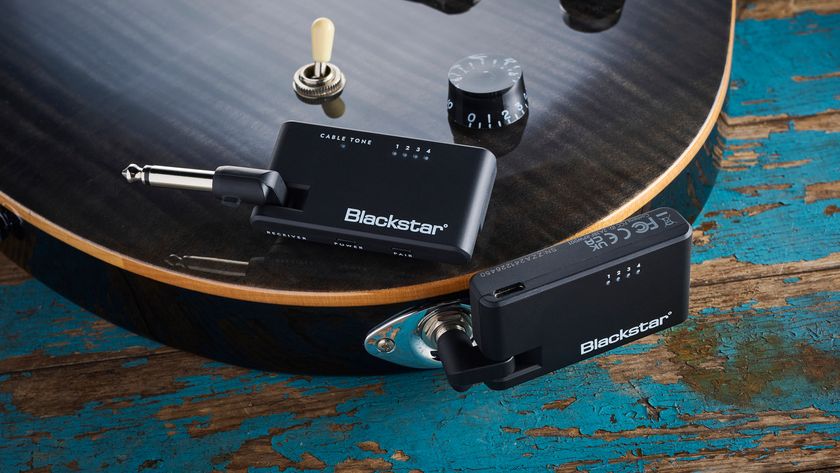
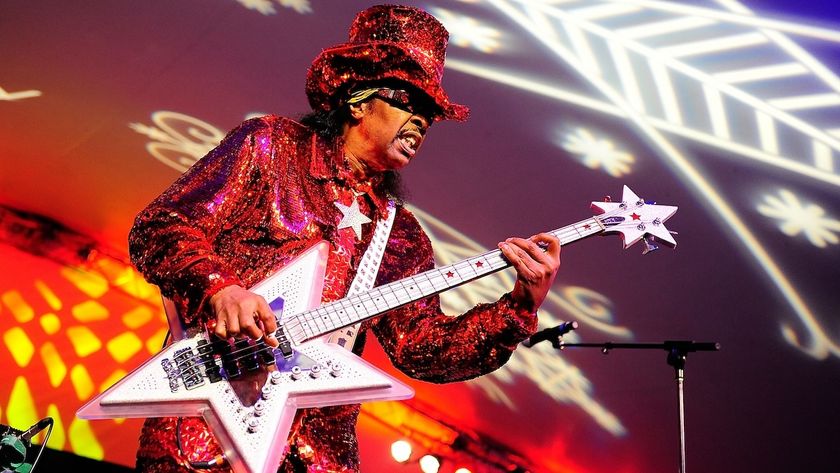
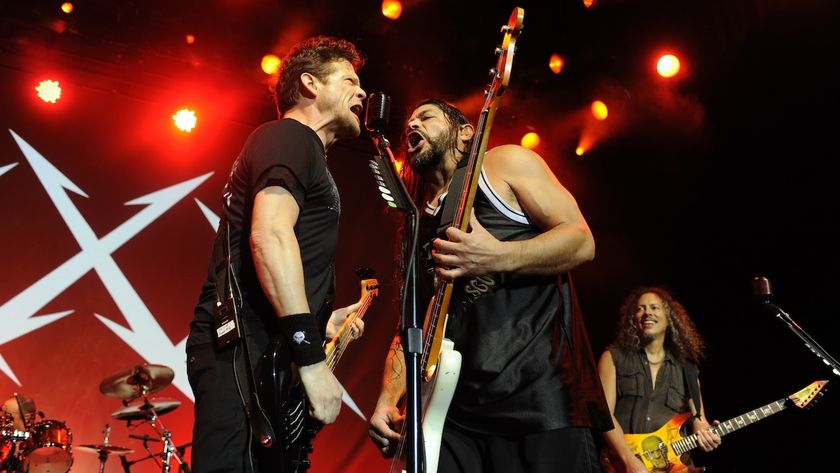
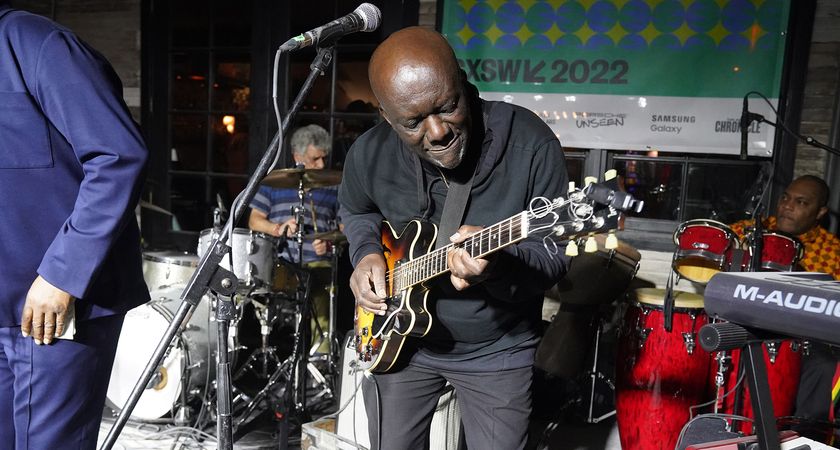
![[L-R] George Harrison, Aashish Khan and John Barham collaborate in the studio](https://cdn.mos.cms.futurecdn.net/VANJajEM56nLiJATg4P5Po-840-80.jpg)
